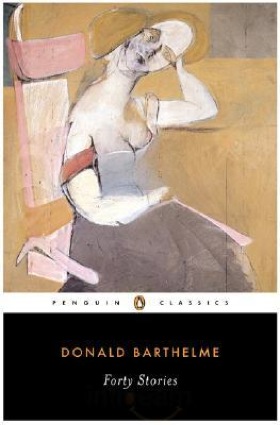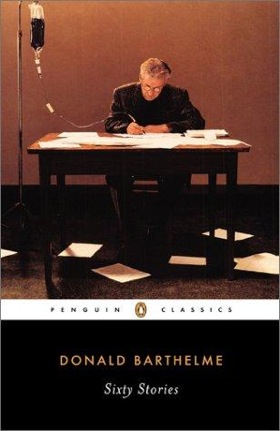You are writing in a period more than twenty years after the death / of / Donald / Barthelme. Act like it.
English to English Translation
Slate has this sick new tool called Plain English which NPR used to translate the Fed’s legalesed-up statement (re: their $600B inflation experiment) into something those of us without a law degree can wrap our heads around.
Buckets of peanut butter with a layer of whipped cream on top, or else Mothballs-vagina
from BOMB 81 / Fall 2002, LITERATURE
Jonathan Safran Foer . . . do you consider yourself a postmodern writer? In the New Republic, Dale Peck recently said you were upholding the high literary postmodern tradition, a tradition Peck claimed was bankrupt.
Jefferey Eugenides On the issue of postmodernism, Dale Peck and I would agree more than he thinks. I don’t see myself as a high postmodernist. I always say it like this: my generation of writers grew up backwards. We were weaned on modernism and only later read the great 19th-century masters of realism. When we began writing in high school and college, it was experimental fiction. I think now that a certain kind of academic experimental fiction has reached a dead end. Middlesex is a postmodern book in many ways, but it is also very old-fashioned. Reusing classical motifs is a fundamental of postmodern practice, of course, but telling a story isn’t always. I like narrative. I read for it and write for it.
Recently I was reading an old panel discussion from 1975 called “The Symposium on the Future of Contemporary Fiction.” Almost 30 years ago now, but they were basically debating the same thing. How do you make something new in literature? How do you move it forward? This discussion took place among Grace Paley, Donald Barthelme, William H. Gass and Walker Percy. Barthelme and Gass, at the apex of their careers back then, kept going on about creating new voices by means of theoretical exertion. But it was Grace Paley who turned out to be right. It didn’t appear that she was right, but now we can see she was. She said that new language rises again and again from human voices, not just new theories. If you look back now, you see that postmodernism hit a dead end, and what took over were the kinds of books—call them multicultural or whatever you want—that Paley was prophesying.
If there’s anything new in Middlesex, it’s not a matter of formal or theoretical development but closer to the new human experience Paley was talking about. The content in the book is new. The narrator, Cal Stephanides, is a real living hermaphrodite, not a mythical creature like Tiresias or a fanciful one like Orlando.
Foer As long as we’re talking about contemporary writing… Who’s your favorite contemporary writer?
Eugenides Right now my favorite writer is A. A. Milne. Let me give you a sample of why:
Rabbit leant over further than ever, looking for his [stick], and Roo wriggled up and down, calling out, “Come on, stick! Stick, stick stick!” and Piglet got very excited because his was the only one which had been seen, and that meant that he was winning.
“It’s coming!” said Pooh.
“Are you sure it’s mine?” squeaked Piglet excitedly.
“Yes, because it’s grey. A big grey one. Here it comes! A very . . . big . . . grey . . . Oh, no, it isn’t. It’s Eeyore.”
And out Eeyore floated.
“Eeyore!” cried everybody.
Looking very calm, very dignified, with his legs in the air, came Eeyore from beneath the bridge.
“It’s Eeyore!” cried Roo, terribly excited.
“Is that so?” said Eeyore, getting caught up by a little eddy, and turning slowly round three times. “I wondered.”
Spec Rad Trial
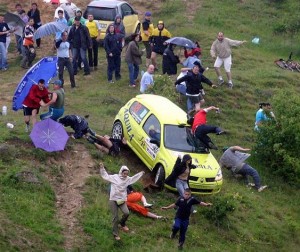 Smart blog post on experimental short story by Charles May.
Smart blog post on experimental short story by Charles May.
When Donald Barthelme’s first collection of stories, Come Back, Dr. Caligari, appeared in 1964, critics complained that his work was without subject matter, without character, without plot, and without concern for the reader’s understanding. For Barthelme, the problem of language is the problem of reality, for reality is the result of language processes.
The Dead Relative
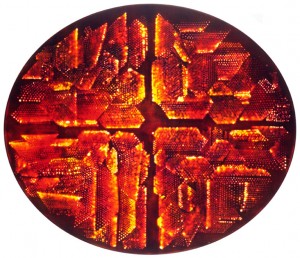
McCaffery: Do you recall the germinating idea for The Dead Father?
Barthelme: A matter of having a father and being a father.
McCaffery: In some basic sense the book deals with the notion that we’re all dragging around behind us the corpses of our fathers, as well as the past in general.
Barthelme: Worse: Dragging these ahead of us. I have several younger brothers, among them my brother Frederick, who is also a writer. After The Dead Father came out, he telephoned and said, “I’m working on a new novel.” I said, “What’s it called?” and he said, “The Dead Brother.” You have to admire the generational wit there.
Featured is a painting by my brother. Ever feel like you are, inevitably, always in a shadow? Or do you feel inspired by a talented sibling?
X-Mas Present: Everything You Always Wanted to Ask David Gates About Donald Barthelme’s Sixty Stories…

…and there were a lot of things you wanted to ask, because Gates’s intro is one of if not the best single essays ever written about DB’s work, so you figured he’d probably have done a pretty sweet job on the notes, too, but for some reason it wasn’t in the Gates-prefaced Penguin Classics Edition of Sixty Stories where it should have been, and you knew it was supposed to be posted somewhere on the Penguin website (it says so in the book) but then when you went to the website you couldn’t find it.
If this is you, friend, your troubles end today. Here. Now. I went to the Penguin site, and found the thing–years ago. It’s amazing and enlightening and it’s over 30 pages long. And I had forgotten about it until just now. Everyone should have access to these notes. Rather than try and re-figure out how I found them, I’m just going to post the .pdf myself: The David Gates footnotes to Donald Barthelme’s Sixty Stories. Merry Christmas, all.
Power Quote
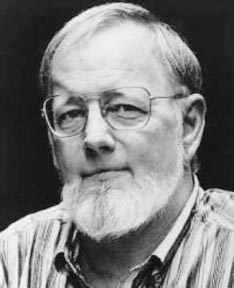
“Both writers were inimitable even as they were widely imitated. Carver, younger, less productive, a practitioner of a spare gritty realism often called minimalism, was the junior executive. Donald Barthelme—sparkling fabulist and idiosyncratic reinventor of the genre, practitioner of swift verbal collages, also sometimes dubbed minimalism—was commander in chief. Barthelme’s particular brilliance was so original, so sui generis, despite its tutelage at the feet of pages by Joyce, Beckett, and Stein, that even his own brothers Frederick and Steven, also fiction writers of intelligence and style, wrote more like Carver.”
—Lorrie Moore, “How He Wrote His Songs“
Power Quote: Donald Barthelme

ANATHEMATIZATION OF THE WORLD IS NOT AN ADEQUATE RESPONSE TO THE WORLD.
– Snow White



